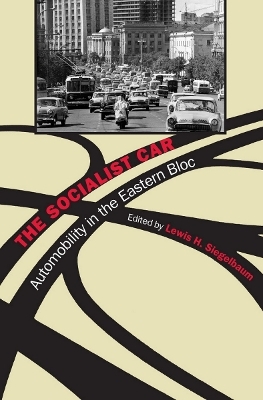
The Socialist Car
Cornell University Press (Verlag)
978-0-8014-7738-6 (ISBN)
Lewis H. Siegelbaum is Professor of History at Michigan State University. He is the author of several books, including Cars for Comrades: The Life of the Soviet Automobile, also from Cornell, and the editor most recently of Borders of Socialism: Private Spheres of Soviet Russia.
Introduction
by Lewis H. SiegelbaumPart One: Socialist Cars and Systems of Production, Distribution, and Consumption1. The Elusive People's Car: Imagined Automobility and Productive Practices along the "Czechoslovak Road to Socialism" (1945–1968)
by Valentina Fava2. Cars as Favors in People’s Poland
by Mariusz Jastrzab3. Alternative Modernity? Everyday Practices of Elite Mobility in Communist Hungary, 1956–1980
by György PéteriPart Two: Mobility and Socialist Cities4. Planning for Mobility: Designing City Centers and New Towns in the USSR and the GDR in the 1960s
by Elke Beyer5. Automobility in Yugoslavia between Urban Planner, Market, and Motorist: The Case of Belgrade, 1945–1972
by Brigitte Le Normand6. On the Streets of a Truck-Building City: Naberezhnye Chelny in the Brezhnev Era
by Esther Meier7. Understanding a Car in the Context of a System: Trabants, Marzahn, and East German Socialism
by Eli RubinPart Three: Socialist Car Cultures and Automobility8. The Common Heritage of the Socialist Car Culture
by Luminita Gatejel9. Autobasteln: Modifying, Maintaining, and Repairing Private Cars in the GDR, 1970–1990
by Kurt Möser10. "Little Tsars of the Road": Soviet Truck Drivers and Automobility, 1920s–1980s
by Lewis H. Siegelbaum11. Women and Cars in Soviet and Russian Society
by Corinna Kuhr-KorolevNotes
Notes on Contributors
Index
| Verlagsort | Ithaca |
|---|---|
| Sprache | englisch |
| Maße | 155 x 235 mm |
| Gewicht | 454 g |
| Themenwelt | Natur / Technik ► Fahrzeuge / Flugzeuge / Schiffe ► Auto / Motorrad |
| Geisteswissenschaften ► Geschichte ► Regional- / Ländergeschichte | |
| Wirtschaft | |
| ISBN-10 | 0-8014-7738-7 / 0801477387 |
| ISBN-13 | 978-0-8014-7738-6 / 9780801477386 |
| Zustand | Neuware |
| Haben Sie eine Frage zum Produkt? |
aus dem Bereich


